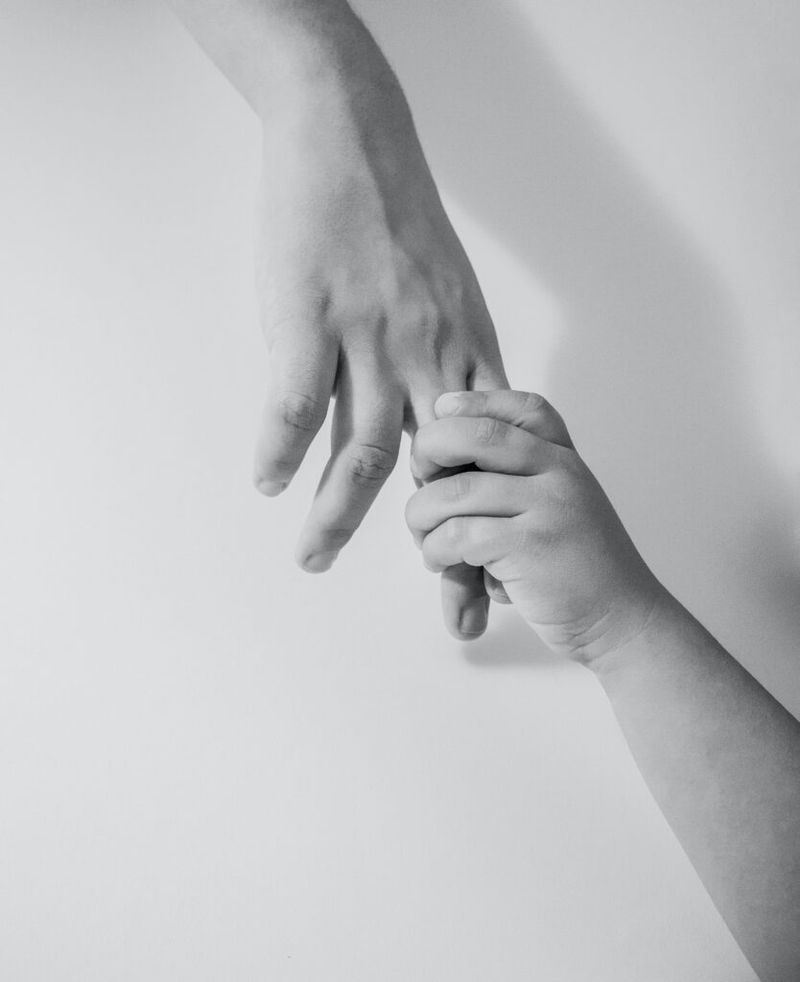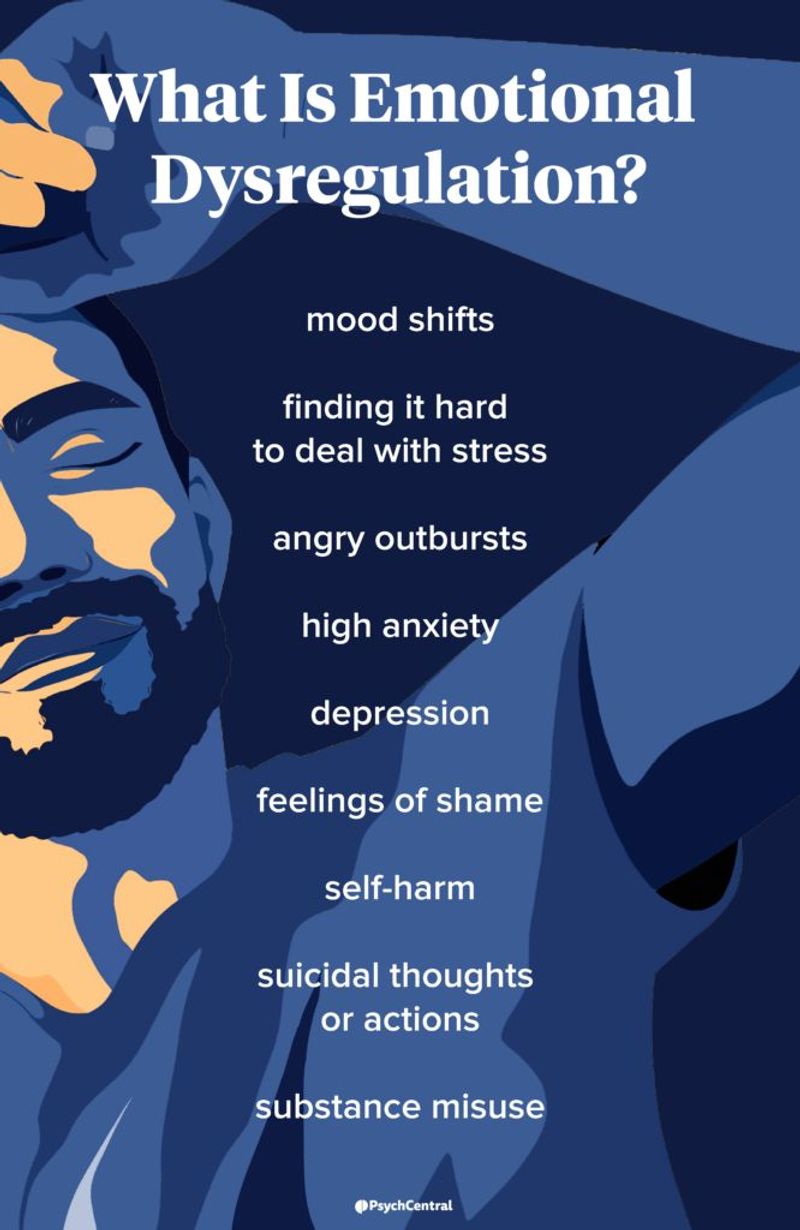Unresolved childhood trauma often leaves profound imprints on individuals as they grow into adulthood. These experiences shape personality traits and behaviors, frequently manifesting in distinct ways. While not everyone with childhood trauma will exhibit all these traits, they are commonly observed in those who have not fully processed their early experiences. This exploration aims to delve into the specific characteristics that are frequently seen in adults dealing with the remnants of unresolved trauma from their formative years. Understanding these traits can foster greater empathy and support for those on their healing journey.
1. Heightened Anxiety

With anxiety often lurking just beneath the surface, everyday tasks become mountains to climb. Racing thoughts and persistent worries can overshadow moments of calm and clarity. This constant state of unease may present in various settings—from workplaces to social gatherings—where the individual may appear tense or restless.
Despite the outward appearance of maintaining control, internally, there is a struggle against imagined catastrophes. This heightened state of alertness can be exhausting, yet it becomes a familiar companion. The challenge lies in finding peace amidst the noise, a task that requires patience and grace.
2. Emotional Numbness

Living with emotional numbness can feel like watching life from behind a glass wall. Emotions, both joyful and sorrowful, seem distant, leading to a muted experience of life. This detachment often serves as a protective mechanism, shielding the individual from potential hurt.
While others may view this as calmness, it can be a sign of deep-seated trauma. Connecting with others might become challenging, as the individual struggles to feel genuine emotions. Overcoming this requires gentle encouragement and a safe space to rediscover feelings. It’s a quiet battle, often unnoticed by the world.
3. Difficulty Trusting Others

Trust issues can cast a long shadow over relationships, causing hesitation and doubt in interactions. For some, building trust feels like constructing a fragile house of cards, easily toppled by betrayal. This wariness often stems from past experiences where trust was misplaced or abused.
As a result, forming deep connections can be arduous, with the fear of vulnerability looming large. However, with time and consistent positive interactions, trust can be rebuilt. The journey is gradual, marked by small steps and courageous leaps of faith, fostering stronger bonds over time.
4. Perfectionism

In the pursuit of flawlessness, perfectionism becomes both a shield and a burden. It manifests as an unyielding standard for oneself, where mistakes are magnified, and self-worth is often tied to achievements.
This relentless quest can lead to exhaustion, as the fear of failure looms large. Every task becomes an opportunity to prove worth, yet the satisfaction is often fleeting. Understanding that imperfection is human can be liberating. Embracing quirks and missteps, rather than fearing them, allows for a more balanced and fulfilling life journey.
5. People-Pleasing Tendencies

Striving to meet others’ expectations, people-pleasers often sacrifice their own needs for approval. This behavior can stem from a desire to avoid conflict or rejection, rooted in past experiences of conditional acceptance.
While on the surface, this trait appears selfless, it often masks a deep-seated fear of abandonment. The constant juggling act of maintaining harmony can be draining. Learning to assert personal boundaries and prioritize self-care marks the beginning of a healthier relationship with oneself and others. It’s about finding the balance between giving and receiving.
6. Hyper-Independence

Hyper-independence can be a double-edged sword; it represents resilience but also a reluctance to rely on others. This trait often emerges from early experiences where self-reliance was necessary for survival.
While being self-sufficient is admirable, it can hinder the ability to seek help when needed. The fear of vulnerability can create barriers to intimacy and support. Learning to accept assistance and share burdens is crucial for fostering meaningful connections. It’s about embracing interdependence, where strength is found in unity rather than solitary resilience.
7. Chronic Self-Doubt

Self-doubt becomes a constant companion, whispering uncertainties and questioning abilities. This internal critic often originates from early environments where worth was constantly evaluated.
Despite outward success, the individual may feel like an imposter, attributing achievements to luck rather than skill. Challenging these negative beliefs involves recognizing inherent value and celebrating personal victories. Building self-confidence is a gradual process, requiring patience and self-compassion. It’s a journey towards embracing one’s true potential and silencing the doubtful echoes of the past.
8. Difficulties with Emotional Regulation

Emotional regulation challenges can turn daily interactions into emotional battlegrounds. Unexpected triggers may cause intense reactions, leaving the individual feeling overwhelmed by their own emotions.
This trait often stems from a childhood lacking emotional support and understanding. Developing strategies to manage these intense feelings is crucial. Techniques like mindfulness and therapy can provide tools to navigate emotional turbulence. Over time, gaining control over emotions becomes empowering, allowing for healthier relationships and a more balanced life experience.

Well, hello there!
My name is Jennifer. Besides being an orthodontist, I am a mother to 3 playful boys. In this motherhood journey, I can say I will never know everything. That’s why I always strive to read a lot, and that’s why I started writing about all the smithereens I came across so that you can have everything in one place! Enjoy and stay positive; you’ve got this!

